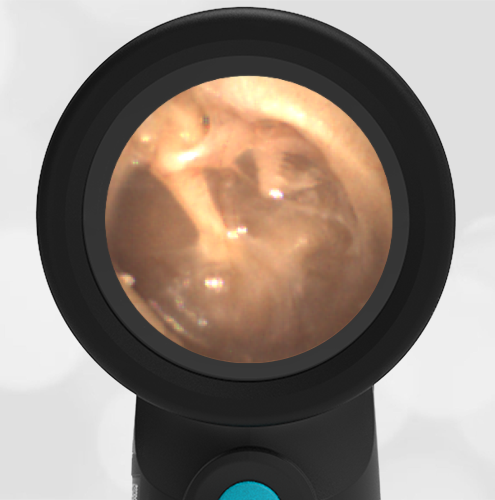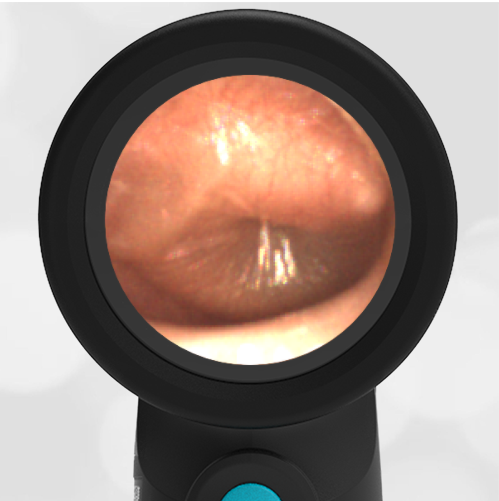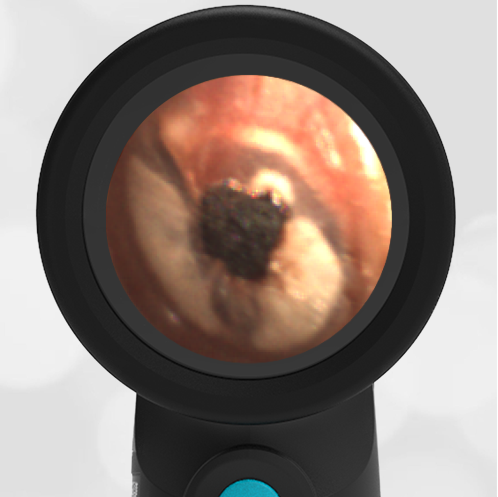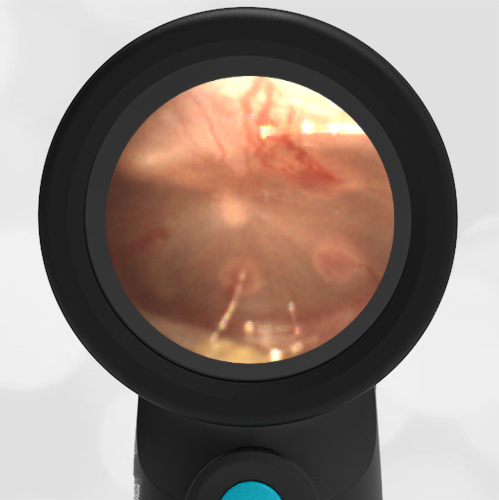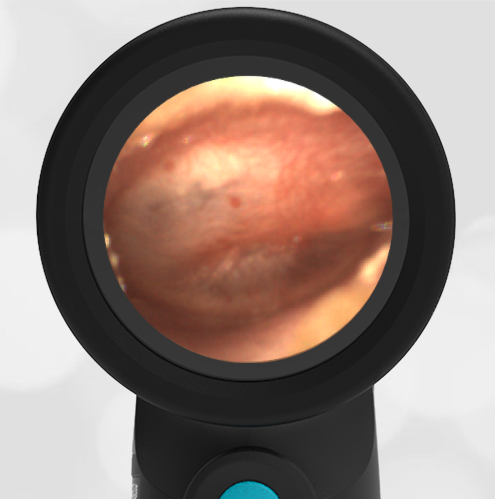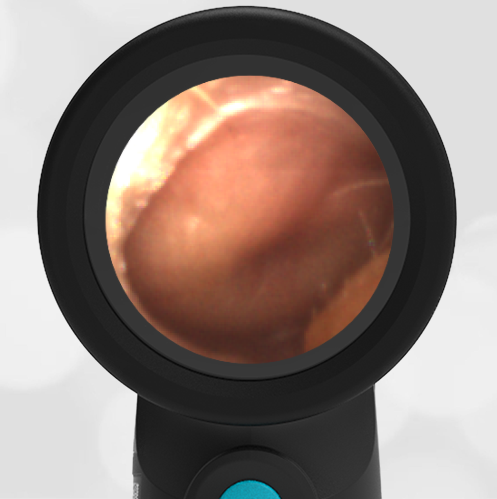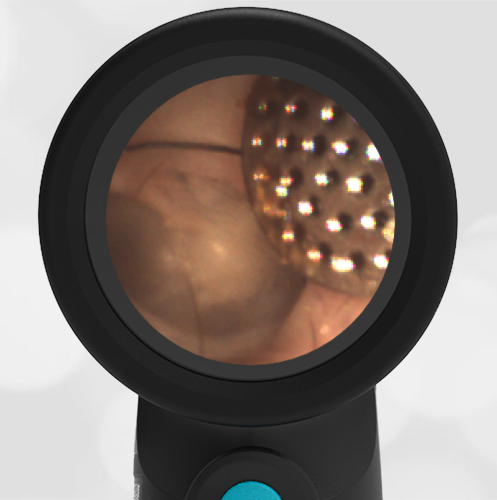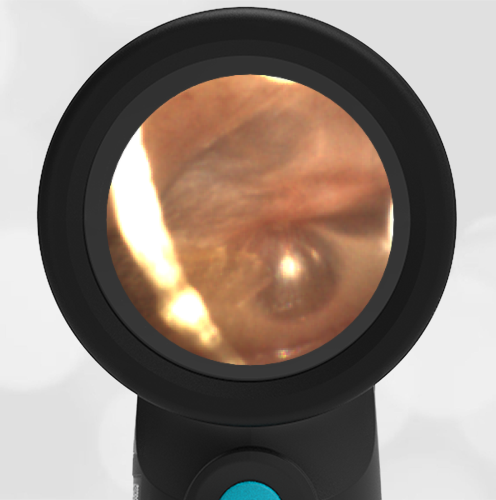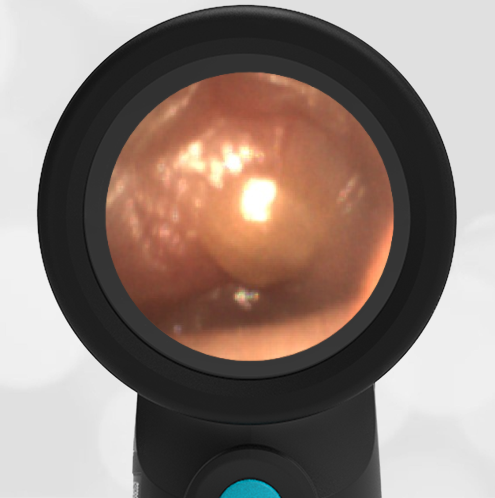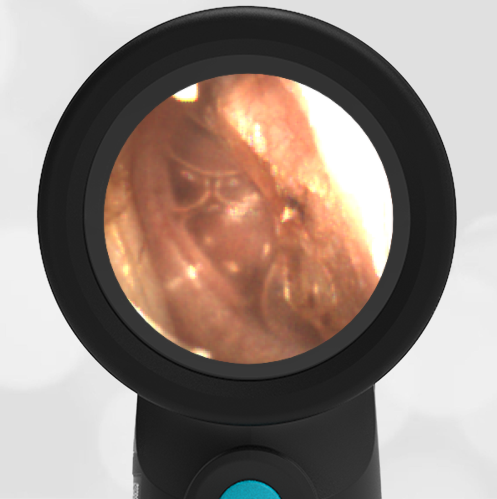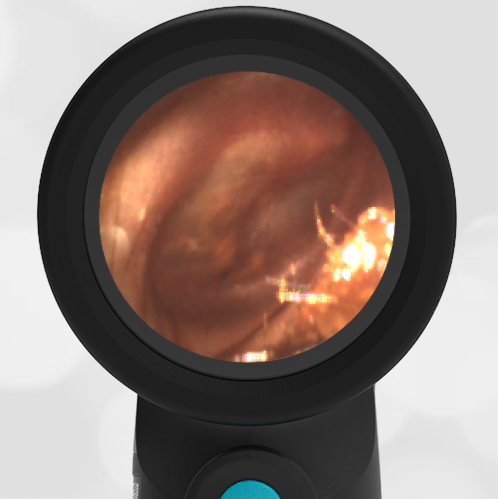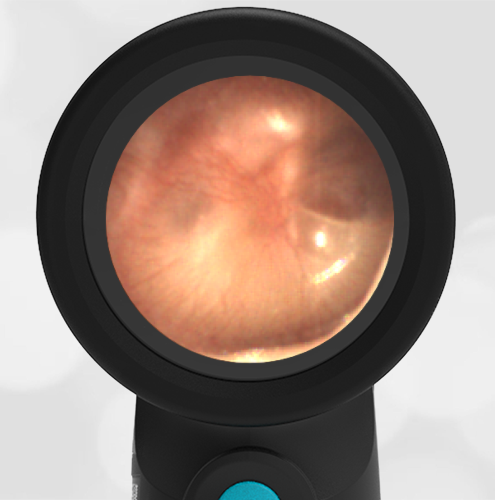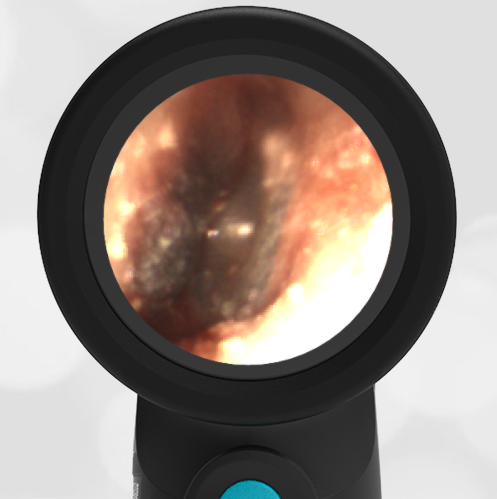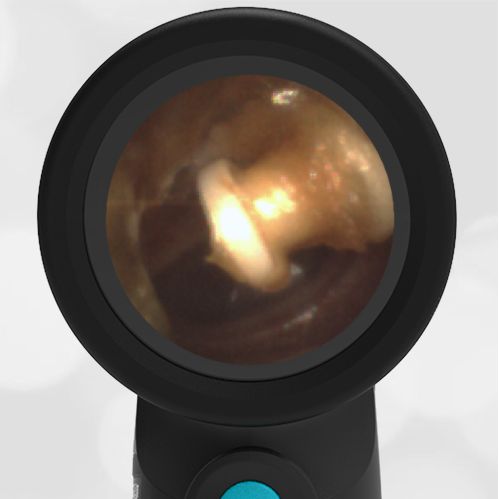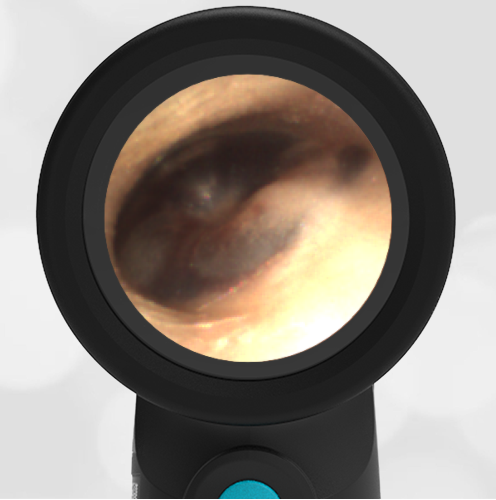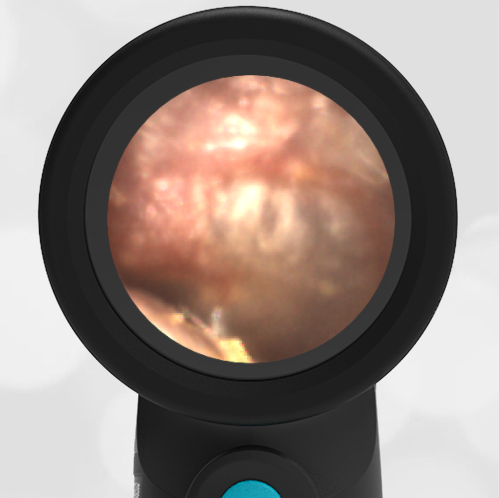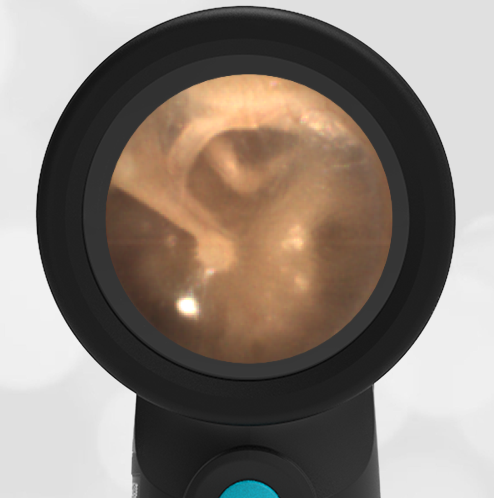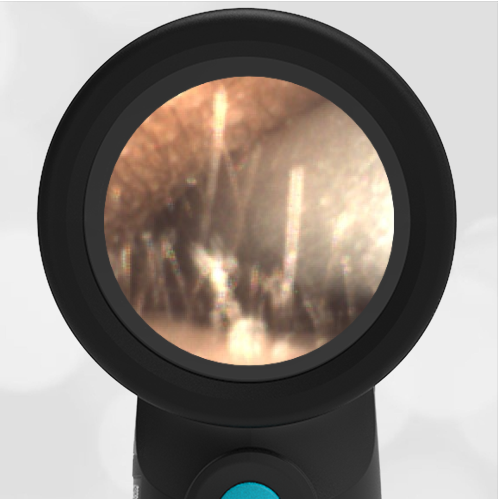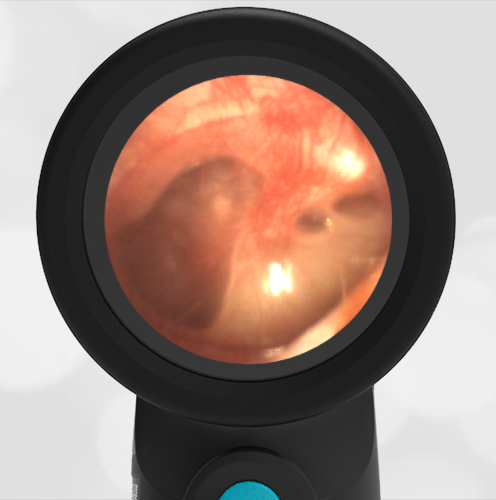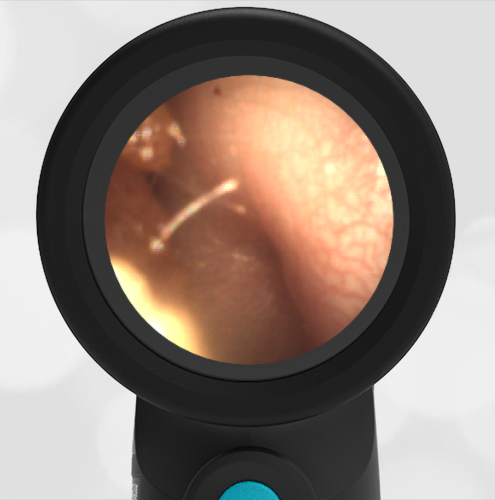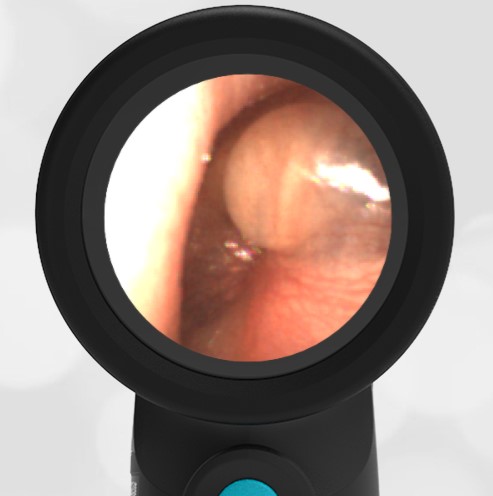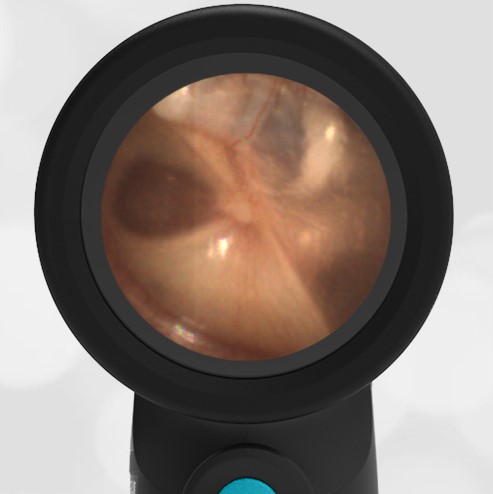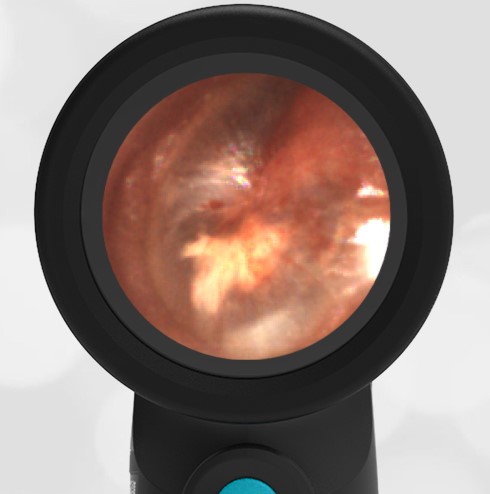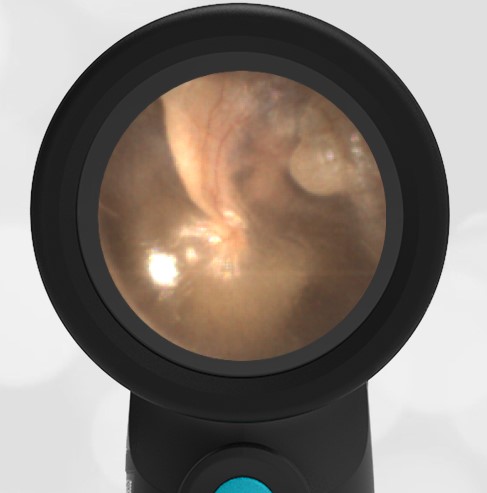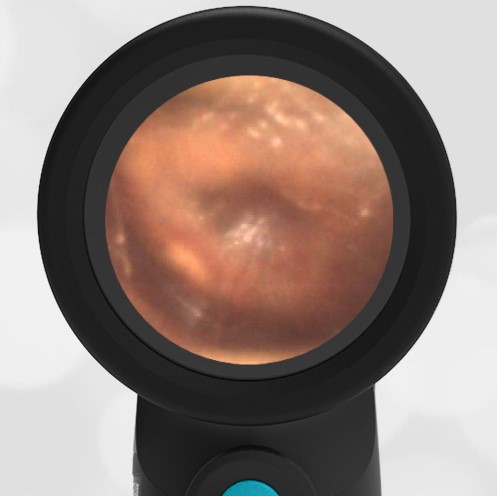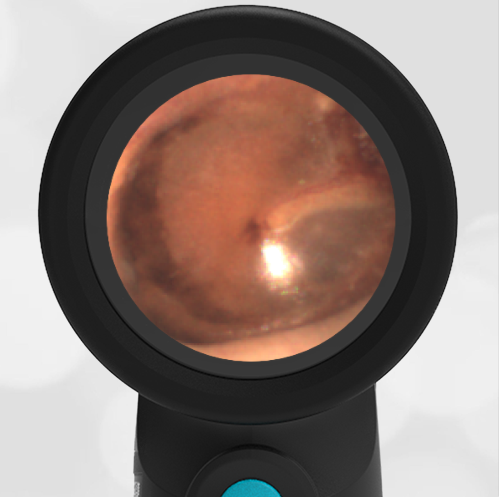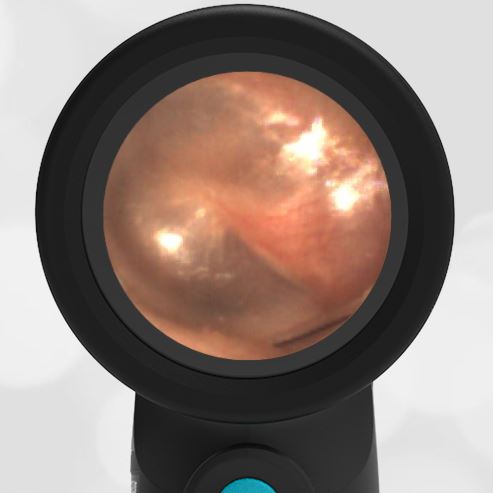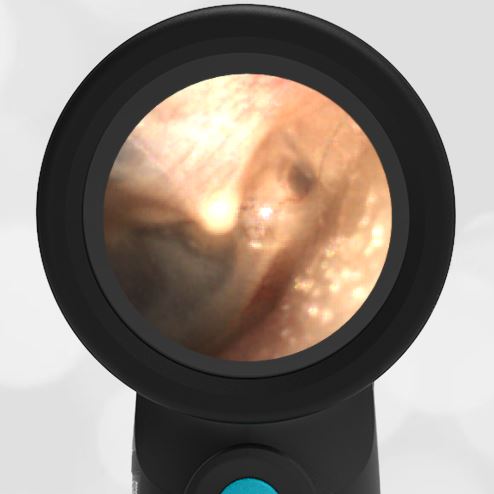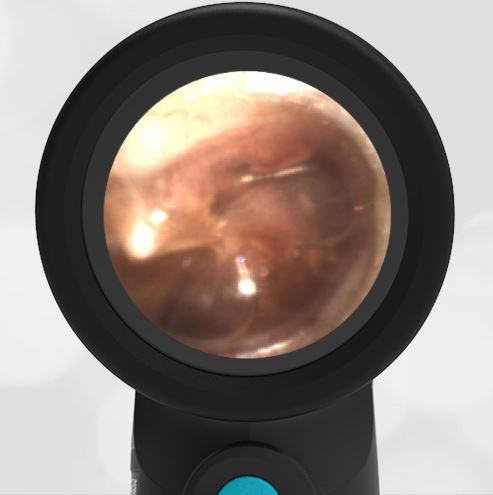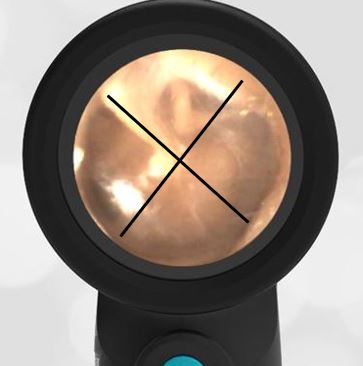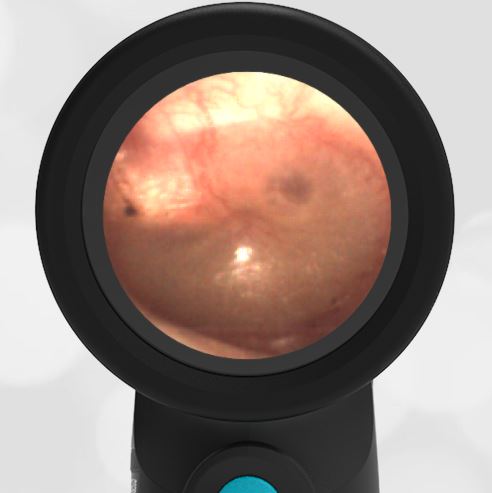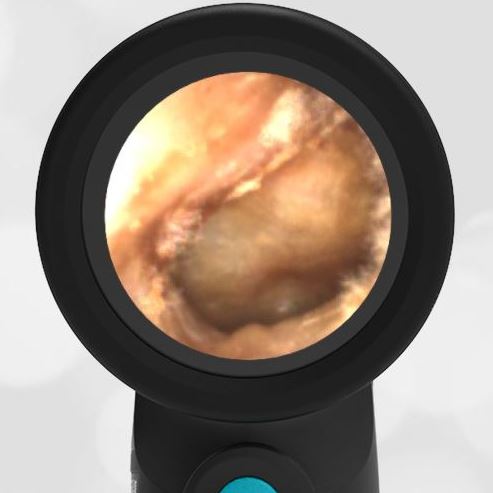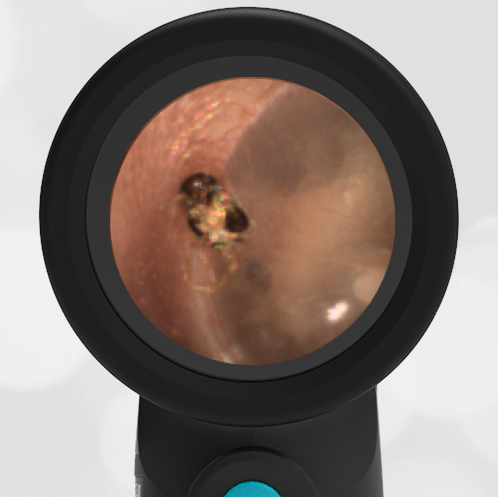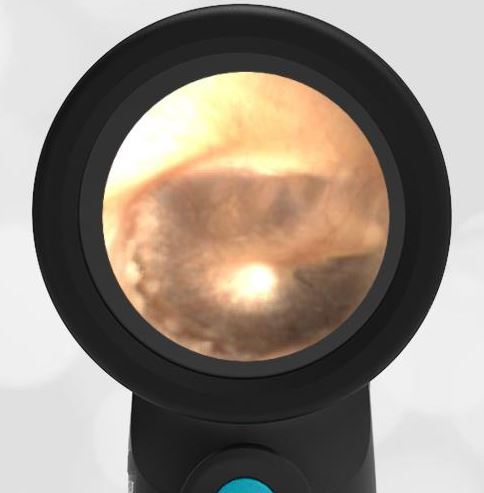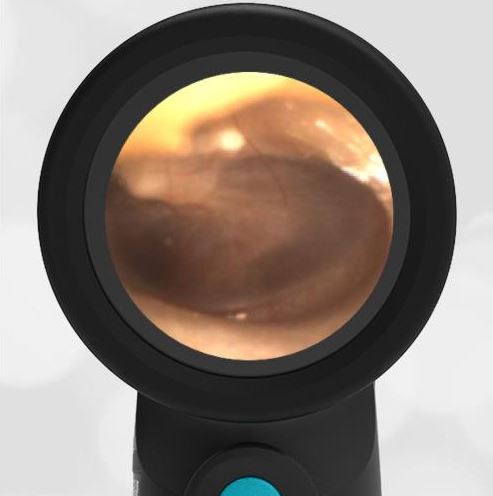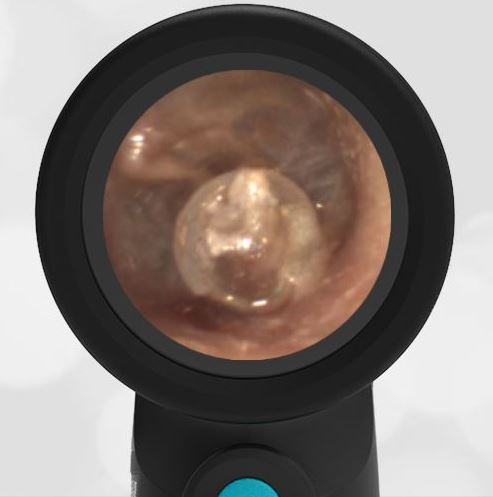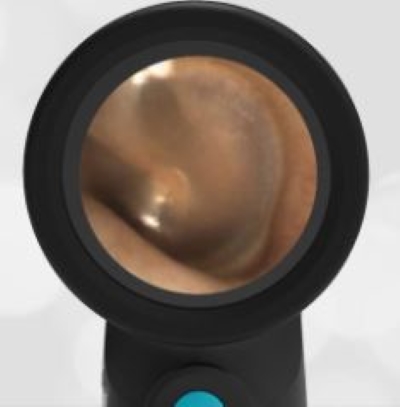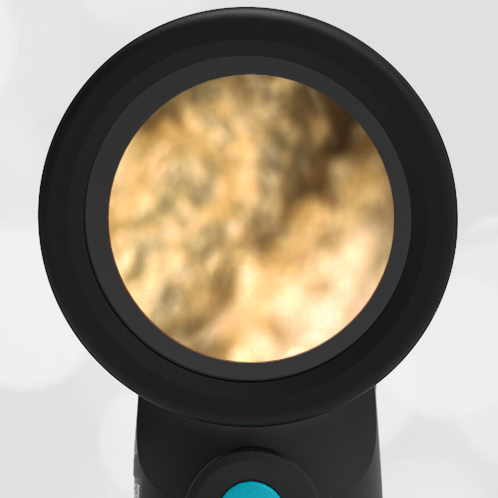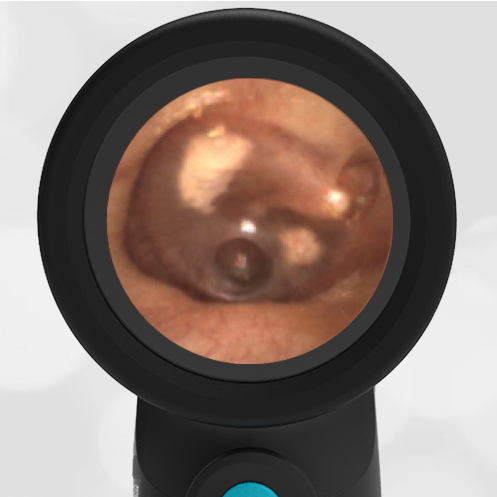
Eustachian Tube Orifice
A 25-year-old male presents to a rural emergency department after being charged by a cow. The patient has right-sided chest pain, facial bruising lateral to the left eye, and inability to close his right hand due to pain at the 4th metacarpal. Evaluation of the right ear with the Wispr Digital Otoscope reveals this image. What is your diagnosis?
Based on the history presented in this vignette, you might expect a diagnosis of hemotympanum (blood behind the eardrum) from a basilar skull fracture. However, this eardrum is normal. The darker area of the eardrum that is circled below might be confused with blood in this clinical scenario; it is actually the Eustachian tube orifice (tympanic cavity) seen on the other side of the semi-transparent eardrum.

For the eardrum to vibrate properly from sound waves, the pressure on both sides of the eardrum must be the same. This is accomplished by the eustachian tube which connects the middle ear to the posterior nasal cavity. Most of us have had the experience of “popping” our ears when descending in an airplane. This maneuver is opening the Eustachian tube and allowing the pressure on both sides of the eardrum to equalize. The Eustachian tube can become inflamed and unable to “open.” This causes ear pain from unequal pressure that is often confused with acute otitis media.
Here is another case that shows a perforated tympanic membrane where the eustachian tube opening is clearly visible.
The patient, in this case, had a complete trauma workup including CT scans of the head, face, and neck. The only injury found was a fracture at his right 4th metacarpal. An ulnar splint was placed and a follow-up arranged with orthopedics.

